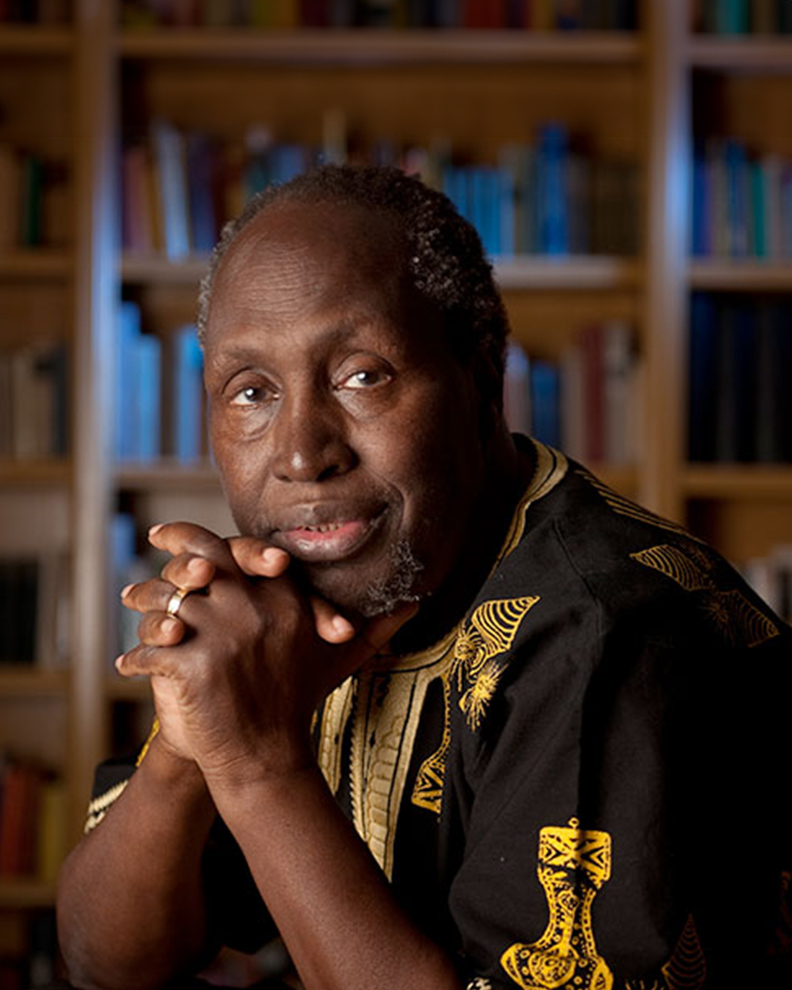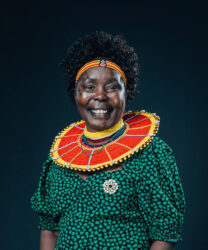Ngũgĩ wa Thiong’o
Ngũgĩ wa Thiong’o, was one of Africa’s most prominent writers and intellectuals, renowned for his contributions to literature, postcolonial thought, and advocacy for linguistic decolonization. Originally writing under the name James Ngugi, he began his career as an English-language novelist, producing works like Weep Not, Child (1964) and A Grain of Wheat (1967), which explore the complexities of colonialism, independence, and the struggles of ordinary Kenyans. However, in the 1970s, Ngũgĩ made a pivotal shift, abandoning English for his native Kikuyu and adopting his traditional name, a decision rooted in his belief that language is a crucial aspect of identity and cultural freedom.
Ngũgĩ wa Thiong’o’s literary and political activism led to significant personal sacrifices, including imprisonment without trial by the Kenyan government in 1977 due to his involvement in producing the play Ngaahika Ndeenda (I Will Marry When I Want), which critiqued social inequalities and corruption. While in prison, he wrote Devil on the Cross on toilet paper, symbolizing his unwavering commitment to storytelling as a tool for resistance. After his release, Ngũgĩ lived in exile for many years, continuing to advocate for the use of African languages in literature and education as a way to reclaim cultural identity and resist the legacy of colonialism.
His influential theoretical works, such as Decolonising the Mind (1986), argue that language plays a pivotal role in the power dynamics of colonialism and that African writers should embrace indigenous languages to express their true experiences. Ngũgĩ’s insistence on the cultural importance of language has significantly impacted postcolonial studies and inspired other writers and scholars to rethink the use of European languages in African literature.
Ngũgĩ’s impact extends beyond literature; he is a vocal critic of neo-colonialism, globalization, and the suppression of cultural identities. He has been nominated for the Nobel Prize in Literature multiple times and remains a towering figure in global literature and activism, embodying the intersection of art, politics, and social justice.
One of his most famous quotes encapsulates his ethos and underscores his belief that language is not just a tool for communication but also a vessel for preserving and transmitting cultural heritage, making his work an enduring call for the decolonization of the mind and spirit.
Famous Quote
Language, any language, has a dual character: it is both a means of communication and a carrier of culture.
— Ngũgĩ wa Thiong’o





